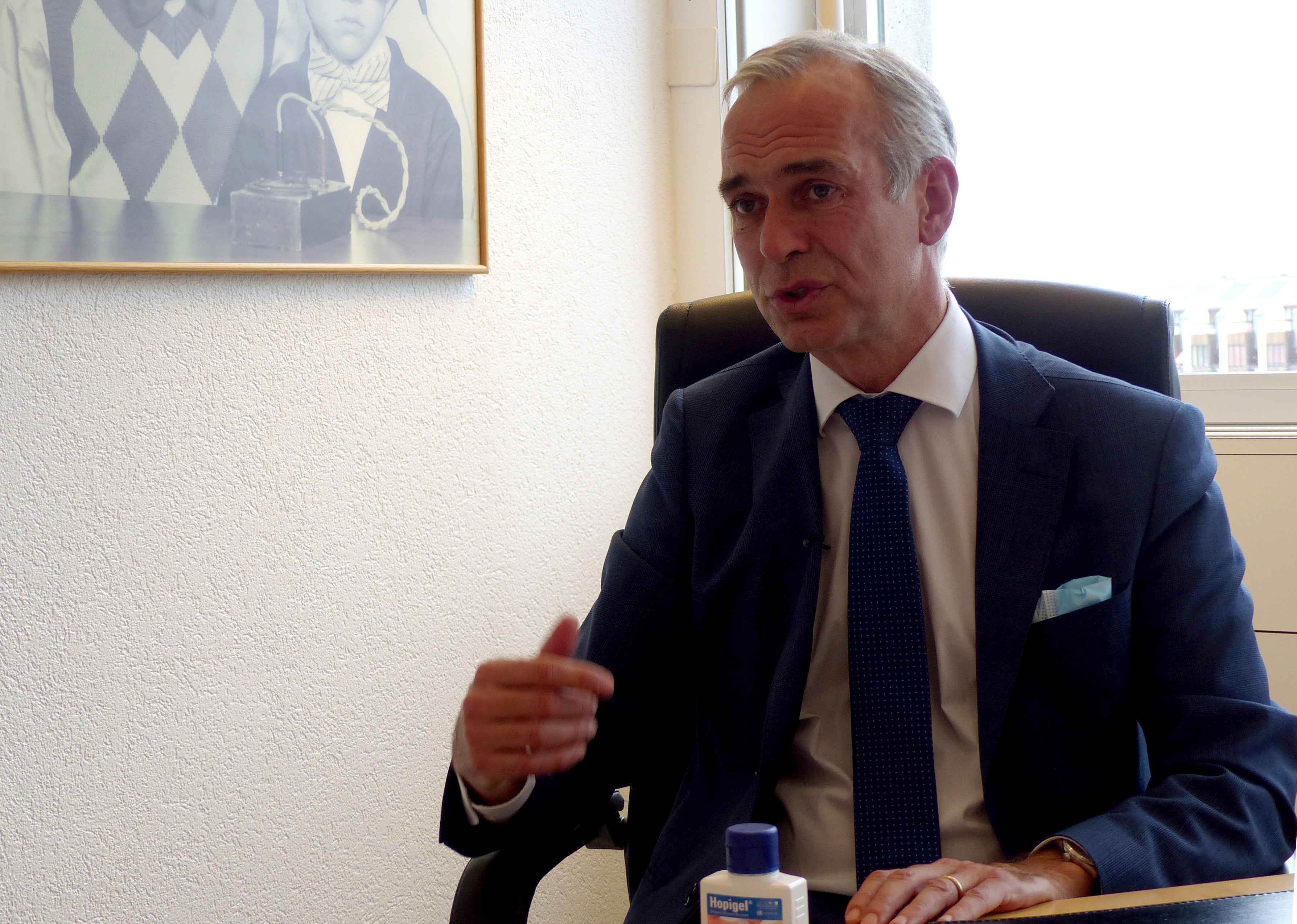Swiss hospital chief: Europe at 'turning point' vs. COVID
Europe is at a “turning point” in the fight against the coronavirus, the head of Switzerland’s biggest hospital complex says

Your support helps us to tell the story
From reproductive rights to climate change to Big Tech, The Independent is on the ground when the story is developing. Whether it's investigating the financials of Elon Musk's pro-Trump PAC or producing our latest documentary, 'The A Word', which shines a light on the American women fighting for reproductive rights, we know how important it is to parse out the facts from the messaging.
At such a critical moment in US history, we need reporters on the ground. Your donation allows us to keep sending journalists to speak to both sides of the story.
The Independent is trusted by Americans across the entire political spectrum. And unlike many other quality news outlets, we choose not to lock Americans out of our reporting and analysis with paywalls. We believe quality journalism should be available to everyone, paid for by those who can afford it.
Your support makes all the difference.Europe is at a “turning point” in the fight against the coronavirus, the head of Switzerland’s biggest hospital complex said, acknowledging growing public fatigue over anti-COVID measures but insisting people must buckle down as Switzerland grapples with record daily case counts.
Bertrand Levrat, CEO of Geneva University Hospitals, which counts 12,000 personnel, spoke to The Associated Press at a time when Switzerland — like many other European countries — is fighting a second wave of coronavirus cases that grew in large part out of a summertime lull in which people let down their guard about the highly infectious pandemic.
“The virus doesn’t spread alone — we are the ones who spread it. It’s a line that we don’t repeat enough,” Levrat said from his office overlooking Geneva, a surgical mask tucked into his jacket pocket. “Today, the stakes center on how much people are going to follow health measures that allow most people, and economies, and life in general to get through this.”
He added: “If we don’t get a handle on this, we run the risk of getting into a situation that’s harder to control,” he said. “We are really at a turning point — things can go both ways. Health services need to look for ways to keep up contact tracing (and) to succeed in getting a grasp on the chains of transmission.”
Swiss authorities, like their counterparts across Europe, are facing the increasingly tricky dilemma of calibrating a response that meets the urgent health care requirements at a time of growing public fatigue about COVID-19 restrictions and when doctors, nurses and other medical personnel are already beleaguered and dreading a new wave that would strain their work and personal lives.
“I think we are quite well prepared, even though it was a huge challenge to every one of us, and huge stress on the system,” Levrat said. “Yes, we are prepared but, yes as well, we are worried a bit because it's a challenge ... with teams that have been quite exhausted by the first wave.”
During that first phase, the hospital had a peak of 550 patients at the same time — all COVID patients. Other medical services were farmed out to private clinics. Today, hospitalizations are at more than 70, but that marks a four-fold increase from just a month ago.